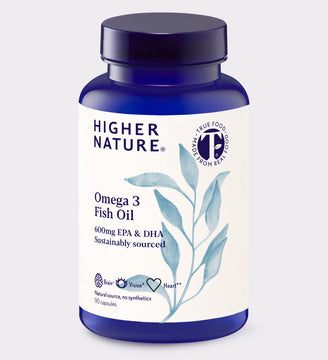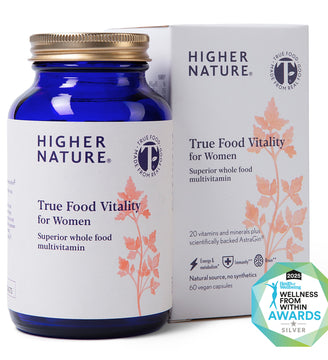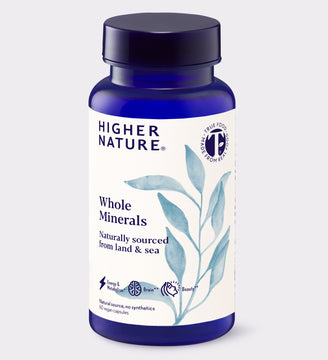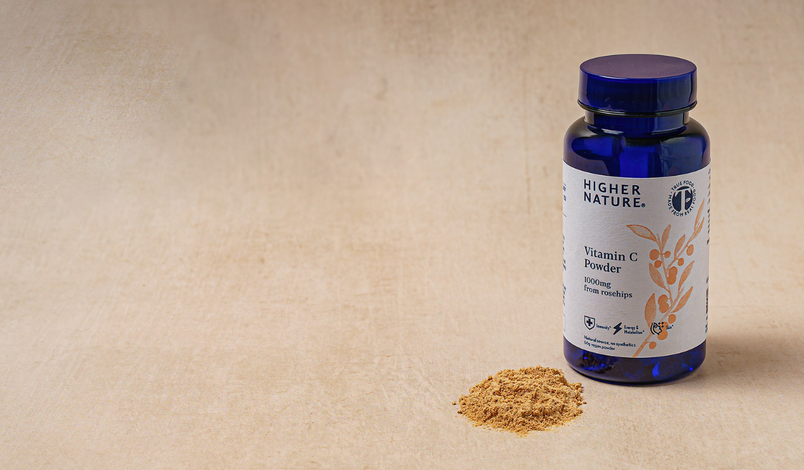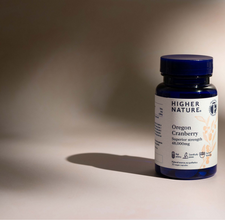
New life
Higher Nature Nutrition Team
Growing and nurturing a new life is an exciting time but one that places extra demands on the mother’s body. The importance of taking folic acid is well-known, but your requirements for many other nutrients also heightens during pregnancy.
Marvellous micronutrients
Whilst the body compensates by increasing absorption of calcium, iron, zinc and vitamin B12 in the gut, these and other nutrients can still become deficient if your diet is lacking. Iron, for example, is needed for extra red blood cells to enable oxygen to be circulated to both you and baby, whilst your baby needs iron, for growth. This increased demand can leave you at high risk of anaemia.
Zinc and iodine are required for development of a healthy nervous system and brain, and alongside calcium and magnesium , zinc is also vital for teeth and bone formation. Visual and hearing development are reliant on vitamin A, which can be converted by the body from beta-carotene, whilst B vitamins are not only imperative for energy production, but also pivotal for maintaining healthy homocysteine levels.
Increase your intake of these nutrients by focussing your diet around lean meat, poultry, fish, eggs, nuts, seeds, dairy, whole grains, pulses, and vegetables and fruit (especially leafy green ones and yellow/ orange coloured ones).
An ideal way to ensure you are getting enough nutrients is to take a supplement specifically designed for pregnancy. Check it also contains vitamin B6 as research shows it may be useful for helping prevent morning sickness. Vitamin D is instrumental for bone and immune health, but research suggests healthy maternal levels are integral in creating a blueprint for children’s health until well into adulthood. Make sure you are taking at the very least the government recommendation of 400iu daily.
Fantastic Fats
DHA, found in oily fish, is crucial for eye, brain and nervous system development in the growing baby, and the third trimester of pregnancy and first six months of a baby’s life are known to be critical periods for accumulation of DHA in the brain and retina. Higher intakes of omega 3 also decrease the mother’s chance of suffering from depression. Include salmon, sardines and mackerel in your diet and consider a fish oil supplement. Alternatively flax, chia and pumpkin seeds and walnuts are rich sources of ALA that the body can convert to DHA.
Bountiful bacteria
As your baby passes through the birth canal it swallows bacteria which help to prime its immune system. Optimise vaginal flora by topping up on your good bacteria. Include ‘live’ yoghurt, kefir or take a high potency multi strain live bacteria supplement


